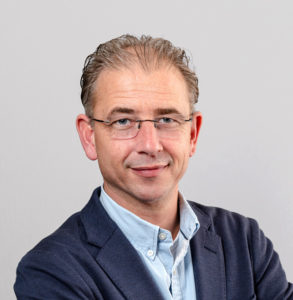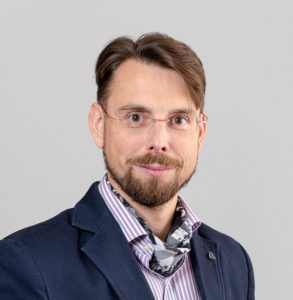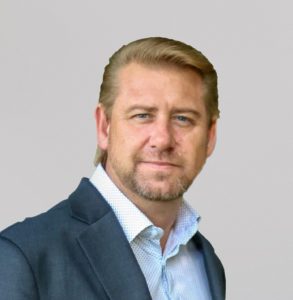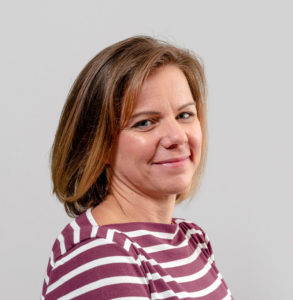Don’t get hijacked!
14 Februarie 2018
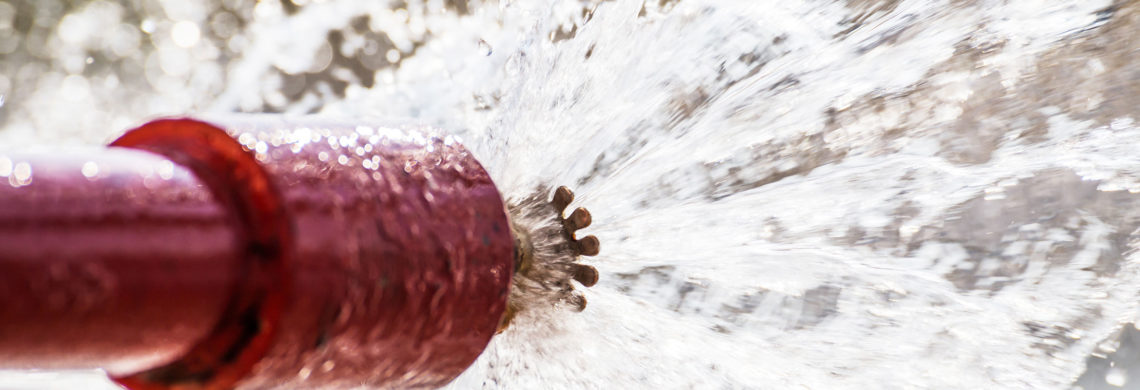
Effectiveness of sprinkler systems:
When designing and developing sprinkler systems, customers are often guided in the wrong direction by the installation company. Not that the installers are deliberately out to get them, says Ruud Schneider (Riskonet). “You simply need to be aware that an installer is interested in more than just installing the most effective system. Have an independent third party write the specifications and check the installation work to ensure proper quality and effectiveness,” recommends Jan.
PROFILE
Jan Jongenelen, Fire Safety Consultant at Riskonet, boasts several decades of experience with designing, drafting, engineering, installing and inspecting sprinkler systems. “I’ve worked for not only building consultants, but also an installation company, which is why I am intimately familiar with the considerations and practical aspects of sprinkler systems from the design to the maintenance phase.”
"As an expert, I have seen and evaluated countless systems in my 30-year career. I’d also like to mention that there can be a world of difference between a system that ‘works’ and one that is truly efficient and effective, that can be well maintained and that gives the customer good ‘Total Cost of Ownership’ (TCO).
During inspections, I’ve encountered sprinkler pump rooms that I would not exactly call effective or maintenance friendly. I’ve become extremely irritated by pump rooms where the essential parts are almost inaccessible for maintenance technicians. In these types of situations, the technicians often spend half the day on maintenance that can normally be done in an hour – with all the associated costs.
For example, a pump suction line may be installed high up in the pump room because the pump itself is installed on a huge concrete slab. That slab is necessary, but causes the suction line to be installed so high that it is not in the way, but this isn’t easily accessible either. Consequently, during maintenance, the service technician needs to constantly walk around the pump, which is time-consuming. I’ve recommended better solutions with a sunken concrete slab, so that the pump is lower, making maintenance much easier and the pressure-side fitting, pressure-side flap and test valve more easily accessible without having to use a ladder. Another advantage of the pump and suction line being installed lower is that a substantially smaller outside tank can be used. And that saves money! This is also a smart solution in situations where tanks have a height limit due to licensing requirements.
Is this a matter of ill will on the part of the installers? Not necessarily. But let’s just say that it’s not exactly to the disadvantage of the installer if its maintenance technicians need to spend numerous hours on maintenance and sprinkler systems.
Let me give another example. A water flow switch in a header system usually needs to be tested every six months. The installer installing the system simply places the test valve at the end of the line. This is sometimes at a height of four metres or, in a luxury office, may be above a suspended ceiling. This means that maintenance technicians have to spend hours on ladders, which of course is unnecessarily time-consuming. The installer will simply claim that this is the standard approach, but a customer does not need to accept this. An informed customer can demand that the test valve be installed a few metres lower and connected to a fixed drain. When testing or even flushing is needed, someone needs to simply operate the valve and the work will be done in no time. Good maintenance does not have to take hours!"
‘A well-informed customer does not let the installer design and install the system at its own discretion’
"That’s the main point I’d like to make: a well-informed customer does not let him or herself be hijacked by an installer who designs and installs the system more or less at the installer’s sole discretion. And in a manner that ensures that the system meets the minimum requirements. This installer would not suggest effectiveness improvements without prompting.
But there is a different way. If customers request that a new building be made fireproof and a sprinkler system is installed, we write a Fire Protection Principles document. After the assessment and approval of both the customer and fire department, an installer should not be allowed to start working immediately in our opinion. As the second step, we recommend preparing specifications that state how the various aspects should be carried out. Specifications clearly describe the requirements in the development process. They also make it possible to focus more intently on effectiveness in every respect – including maintenance.
But that’s not all. There is also no reason not to vigilantly examine the system prior to installation. That’s because experience has shown that installers often use ‘a cheaper alternative’ for certain aspects, which also have a quality label and work ‘just as well’. This may be the case, for example, with the dry pipe valves that every system is required to include or with ‘controlled valves’. If you use cheaper alternatives for these essential parts, this can have a negative affect on maintenance and user-friendliness.
Customers who opt for quality and effectiveness – and a good TCO – are two steps ahead of the game. They are choosing to go the extra step and prepare specifications and monitor installation. That is an investment that will pay for itself multiple times over."
The essence of Riskonet is an international team that works from individual branches in the Netherlands, Poland and Turkey. Click here for a more detailed description.
Riskonet oversees the entire chain.

